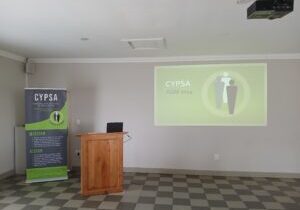Thembalethu Mtshali
2017-08-15 18:27
Teachers around the country have raised serious concerns regarding the possible legalisation of dagga in South Africa, arguing that it could prove detrimental to the youth because it was “unrealistic to believe that legalised dagga would be controlled and kept out of the hands of young people.
This is according to a report released on Friday by the Concerned Young People of South Africa, a youth based and community focused initiative that offers support and guidance to young people while also providing a voice for the youth of South Africa.
The organisation surveyed 5250 ex-drug users as part of an ongoing study, Self-reported Drug Use Among South African Youth.
The survey showed 96% of respondents stated that the first drug they ever used was dagga. The average age of first dagga use was 16 years. Incidence of onset of cannabis use was the highest between ages 14-17.
Of those respondents who stated that they went on to use other drugs after dagga, 49.21% went directly from the use of dagga to cheap heroin (whoonga/nyaope) and 27.68% went directly from the use of dagga to Mandrax.
These two drugs, which accounted for 76.89% of second drugs used, are both drugs that are used by being mixed together with dagga and smoked.
The third drug of use was heroin (whoonga/nyaope), with 70% of all respondents saying this was their third choice of drug.
These findings, according to the organisation, confirmed that dagga could be the gateway drug to other drugs in the South African context.
“Dagga’s efficacy as a gateway drug and the danger posed by it could be enhanced in the South African context, due to the method of heroin ingestion in the country, which is to mix heroin with dagga and smoke the combination,” the organisation said.
“Underlying the heroin epidemic in SA is dagga as a drug of first use and the role it plays in the progression to the use of other drugs.”
For these reasons and many others, South African educators are not in favour of the legalisation. They argue that the “best interest of the child” and the country’s education system are being overlooked in this debate.
Based on feedback from 2534 schools across the country visited in recent years, the report showed that marijuana use was one of the greatest challenges currently faced by South African schools.
In the report, an educator from Hammanskraal said “many learners believed dagga would help them obtain better marks.”
“I can’t imagine why they think so because we have experience in a school of dagga smokers who regularly under-achieve.
“If a child becomes very daring and confrontational we test him/her for drugs – it is part of our school policy and parents agree to test – and 99% of the time they test positive for drugs, of which cannabis is the most widely used.
“We’ve had children falling asleep in class because they were “too relaxed” after smoking dagga; we’ve had kids laughing and shouting and playing outside while they should have been in a class focusing on their education – they ingested ‘space cakes’ during break and were too spaced-out to control their emotions and their behaviour.”
Meanwhile, a school pupil is recovering in hospital after eating muffins laced with dagga at her high school in Orange Farm
The girl and about 20 others at Siyaphambili High School landed in hospital two weeks ago after eating the popularly known “space cookies” purchased from an 18-year-old Grade 12 pupil.
The girl was moved from intensive care on Wednesday but remained under observation in hospital. Her family has opened a case of attempted murder against the young man.
Another teacher from KwaZulu-Natal said in the report: “The thinking and reasoning behind the legalisation of dagga was solely because of its capabilities to ease the dreaded pain of certain ailments.
“I sincerely hope that when it does become legal then it is solely for that purpose only and it must be prescribed by someone in authority and who understands its benefits. My understanding is that it is not for recreational purposes.”



